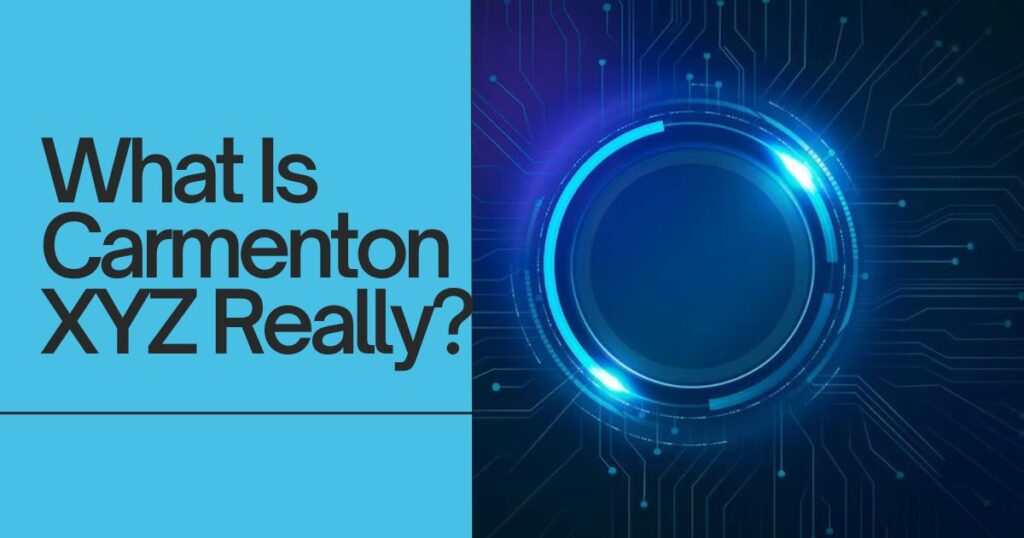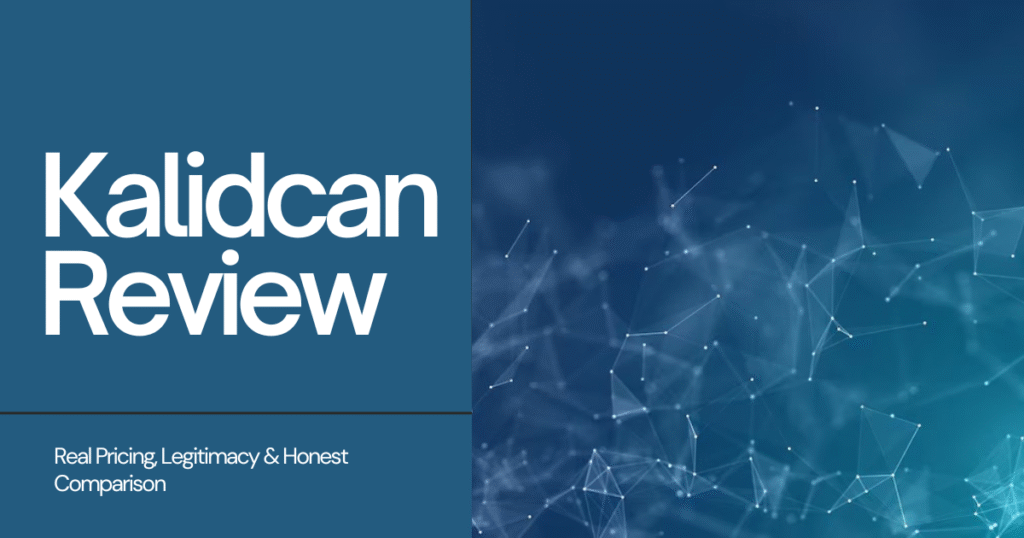Poieno is both an ancient Greek concept meaning “to make or create” and a modern lifestyle framework for intentional living. Rooted in Aristotelian philosophy, it represents purposeful action toward bringing something into being. In 2025, poieno has evolved into a practical three-step method—awareness, alignment, action—helping individuals reduce chaos, increase focus, and live according to core values amid digital overwhelm and complexity.
You wake to 47 notifications. Your calendar bleeds into evening. Tasks multiply faster than you complete them. By bedtime, you’ve stayed busy but accomplished little that matters.
This describes daily life for millions navigating 2025’s relentless pace. Productivity apps promise solutions but add complexity. Hustle culture demands more while delivering less satisfaction. The gap between activity and meaningful progress widens continuously.
Poieno offers a different path entirely. This guide explores how an ancient philosophical concept transforms into practical methodology for modern life, what makes it distinct from generic productivity systems, and how to implement its principles starting today. You’ll discover why this approach resonates particularly now and whether it suits your situation.
The Dual Origins of Poieno
Understanding poieno requires exploring both its philosophical roots and natural symbolism that give the concept depth beyond surface-level productivity techniques.
The Greek term “poiein” appears throughout Aristotelian philosophy denoting creative action—the process of bringing something from potential into actuality. This wasn’t passive occurrence but intentional making, purposeful crafting that required vision combined with deliberate effort. Aristotle distinguished poiein (making) from praxis (doing), with poiein specifically involving creation directed toward outcomes beyond the action itself.
This philosophical foundation matters because it positions poieno as fundamentally creative rather than merely reactive. You’re not just responding to demands or checking boxes. You’re actively shaping existence according to intention. This subtle distinction transforms how you approach daily choices and long-term direction.
The Romanian linguistic connection adds complementary imagery. “Poienă” refers to forest clearings or meadows—open spaces where light penetrates dense woods. These natural clearings served historically as meeting places, sites for reflection, and areas where new growth emerged after old forests opened. The metaphor translates beautifully to modern application: poieno creates mental and temporal clearings where you think clearly amid life’s dense demands.
These dual origins—philosophical action and natural space—merge into contemporary poieno practice. You’re simultaneously creating with intention and cultivating clarity within chaos. The combination addresses both what you do and how you experience doing it.
Migration patterns carried “poieno” as a surname across Europe and South America, particularly Brazil and Italy, where families bearing this name maintained connections to their roots while adapting to new cultures. This geographic journey mirrors the concept’s evolution—traditional wisdom adapting successfully to contemporary contexts without losing essential character.
How Poieno Works as Living Framework
The elegance of poieno lies in its simplicity. Rather than overwhelming systems requiring extensive setup, it operates through one repeating cycle: awareness → alignment → action.
Awareness forms the foundation. You pause deliberately to notice current reality without judgment. What demands your attention? What drains energy versus what energizes you? What matters versus what merely feels urgent? This isn’t lengthy self-analysis but honest observation—typically requiring only minutes. You might journal briefly, sit quietly, or simply think during a walk.
The key distinction from typical reflection is the non-judgmental stance. You’re not criticizing yourself for poor choices or celebrating wins. You’re gathering data about your current state as objectively as possible. This emotional distance prevents the spiral of guilt or pride that often accompanies reflection, keeping the process useful rather than counterproductive.
Alignment follows awareness naturally. Having noticed where you are, you now connect choices to values. If family ranks as priority but your calendar shows no family time this week, misalignment becomes obvious. If health matters yet you’ve skipped exercise five days running, the disconnect reveals itself. Alignment isn’t about judging these gaps but recognizing them clearly.
This step transforms vague desires into concrete criteria for decisions. When facing competing demands, aligned choices become apparent. The meeting scheduled during your protected family dinner time? Your alignment around family value makes declining straightforward. The project offering prestige but requiring health-compromising hours? Alignment clarifies that tradeoff isn’t worth making.
Action completes the cycle with specific, manageable steps. Poieno explicitly rejects hustle mentality favoring instead small movements in aligned directions. Rather than overhauling your entire life simultaneously, you identify one or two concrete actions matching your awareness and alignment. Maybe that’s a 15-minute morning walk three times weekly. Perhaps it’s declining one meeting daily to protect focus time. Possibly it means scheduling that difficult conversation you’ve avoided.
These actions deliberately stay small because sustainability beats intensity. Grand gestures fade quickly. Modest consistent steps compound over time into substantial transformation. After completing your chosen actions, the cycle repeats—new awareness, refined alignment, adjusted actions. This iterative approach allows continuous refinement rather than rigid adherence to predetermined plans.
Why Poieno Resonates Particularly in 2025
Current technological and social conditions create perfect environment for poieno’s effectiveness despite—or rather because of—contemporary challenges.
Digital tools proliferate exponentially. AI assistants, project management platforms, communication apps, and automation services promise to simplify life while often complicating it. Each tool requires learning, maintenance, and integration with existing systems. The cognitive load of managing tools meant to reduce cognitive load creates ironic burden.
Poieno doesn’t fight technology but teaches intentional engagement with it. During awareness, you notice which tools genuinely help versus which merely create activity illusions. Alignment reveals whether constant connectivity serves your values or undermines them. Actions might include batching notifications, designating tech-free hours, or using AI for actual benefit rather than distraction.
Work structures have fundamentally shifted. Remote, hybrid, and flexible arrangements dissolve traditional boundaries between professional and personal life. While offering freedom, this dissolution makes protecting time for what matters more difficult. Without office walls and fixed hours creating natural separations, everything bleeds together.
Poieno provides internal structure when external structures disappear. Your awareness cycle might reveal that working from bed undermines both rest and productivity. Alignment with health and effectiveness values suggests creating spatial separation. Action involves designating specific work locations and protecting bedroom as rest-only space.
Information volume overwhelms finite attention capacity. Social media, news cycles, professional updates, and personal communications create constant input demands. FOMO (fear of missing out) drives compulsive checking while valuable focus time fragments into useless increments.
The awareness component of poieno surfaces this dynamic clearly. You notice the anxiety accompanying constant connectivity. Alignment with calm and focus values highlights the contradiction. Actions establish information diet—designated checking times, curated sources, deliberate ignorance of certain domains. This isn’t burying your head but consciously choosing signal over noise.
Social comparison reaches unprecedented intensity through curated digital personas showcasing highlight reels while concealing struggles. This breeds inadequacy even among objectively successful people who constantly measure themselves against impossible standards.
Poieno’s emphasis on personal values rather than external validation provides antidote. Awareness reveals when comparison thoughts arise. Alignment reconnects you to what actually matters in your life specifically. Actions based on your values rather than others’ appearances naturally reduce comparison’s power.
Practical Implementation Across Life Domains
Understanding principles matters less than applying them. Poieno transforms from interesting concept to useful tool through consistent practice in specific life areas.
Professional application starts with honest assessment of work reality. Many people operate on autopilot, attending meetings, responding to messages, and completing tasks without evaluating whether any of it serves meaningful goals. Awareness breaks this pattern by asking: What outcomes does my work actually produce? Which activities generate results versus just activity? Where do energy and time disappear without corresponding value?
One simple awareness practice involves weekly reviews examining calendar and task list. You might discover that meetings consume 20 hours weekly but half produce no decisions or actionable outcomes. Or that email occupies three hours daily yet most messages don’t require responses. This data collection isn’t about guilt but information.
Alignment in professional context connects work choices to career values and personal priorities. If learning and growth matter, is your work developing new capabilities or endlessly repeating familiar tasks? If work-life integration is a value, does your schedule reflect that or does work consistently encroach on personal time? Honest answers guide decisions about which opportunities to pursue, projects to decline, and boundaries to establish.
Actions might include blocking two hours daily for deep work on highest-priority projects, implementing “no-meeting Fridays” for individual contribution, or establishing clear end-of-workday rituals that signal transition to personal time. These aren’t revolutionary changes but intentional adjustments aligned with what you determined actually matters.
Personal relationships benefit profoundly from poieno’s structure. Awareness reveals where connection happens versus where it’s assumed but absent. You might notice that despite living together, you and your partner rarely have undistracted conversations. Or that friendships you value have become text exchanges rather than meaningful interactions. Or that family relationships run on obligation rather than genuine enjoyment.
Alignment asks which relationships truly matter and what quality of connection serves those relationships. If deep friendship is a value but current patterns involve only surface-level group socializing, misalignment is clear. If family connection matters but every interaction involves screens or distractions, adjustment is needed.
Actions create space for connection quality: weekly phone calls with distant friends, device-free dinners at home, monthly one-on-one time with each child, annual trips with core friend groups. These practices aren’t complex but require protecting time and attention from competing demands—something most people fail to do consistently.
Health and wellness represent another domain where poieno proves particularly effective. Awareness around physical state often reveals patterns we ignore—chronic fatigue, stress symptoms, declining fitness, poor eating habits developed unconsciously. The non-judgmental observation stance prevents the shame that typically accompanies health awareness, allowing honest assessment instead.
Alignment connects health choices to broader life values. If you want energy for activities you enjoy, sleep deprivation and poor nutrition work against that value. If you want to be present for grandchildren decades hence, current exercise and health habits either support or undermine that goal. This value-connection makes health choices feel personally meaningful rather than imposed obligations.
Actions stay deliberately modest: walking 15 minutes daily, drinking water before coffee, eating vegetables at dinner, sleeping 30 minutes earlier. These incremental changes compound over months into substantial health improvements that crash diets and extreme workout programs never achieve sustainably.
Common Obstacles and Practical Solutions
Even straightforward systems encounter implementation challenges. Anticipating common difficulties helps you navigate them successfully rather than abandoning the approach when obstacles arise.
Initial discomfort with awareness is perhaps the most common challenge. Many people avoid honest assessment because they fear what they’ll discover. If awareness reveals that you’re not living according to stated values, that realization feels uncomfortable. The natural response is avoiding awareness entirely by staying perpetually busy.
The solution involves reframing awareness as data collection rather than judgment. You’re not discovering that you’re bad or wrong—you’re simply noticing patterns. This information empowers change rather than condemning current state. Start with small awareness practices: three minutes of observation at day’s end, one-line journal entries, brief walks without devices.
Difficulty identifying values troubles people whose lives have been shaped primarily by external expectations—family pressures, cultural norms, economic necessities. When asked what matters, they draw blanks or list what they think should matter rather than what genuinely does.
Value identification needn’t involve deep philosophical exploration. Simple questions reveal values: When do you feel most alive? What makes you proud? What angers you when you witness it? Which parts of your past do you want to preserve versus change? Patterns in these answers point toward core values guiding alignment decisions.
Inconsistent practice represents perhaps the most common obstacle. Life interrupts routines. Crises demand attention. Travel disrupts patterns. After missing awareness-alignment-action cycles for days or weeks, many people feel they’ve failed and should start over with renewed commitment—which typically lasts briefly before the next interruption.
Poieno specifically doesn’t require perfection or consistency. The cycle is always available whenever you choose to engage it. Miss three weeks? Start again today. Fall off after one day? Resume tomorrow. The practice succeeds through long-term pattern rather than perfect execution. Five years of imperfect practice beats one month of perfection followed by abandonment.
Overthinking the process itself creates paralysis. Some people make poieno complicated by seeking perfect awareness techniques, optimal alignment frameworks, and scientifically validated actions. While these pursuits aren’t inherently wrong, they postpone actual practice indefinitely.
The remedy is starting with rough approximations. Your awareness might be vague initially. Your values identification could be incomplete. Your actions might not perfectly align. That’s fine—the practice itself refines these elements over time. Messy implementation beats perfect planning that never converts to action.
Social and environmental contexts often work against poieno principles. Workplaces reward constant availability and visible activity over actual results. Social circles normalize overscheduling and complaints about busyness. Family expectations demand time and energy regardless of your values or capacity.
You can’t always change these contexts but you can establish boundaries within them. Actions in poieno might specifically address environmental pressures: communicating work availability hours to colleagues, declining social invitations that drain more than energize, negotiating family obligations, or accepting that disappointing others sometimes necessary for living according to your values.
The Broader Movement Toward Intentional Living
Poieno fits within larger cultural shifts happening across professional and personal domains as people seek alternatives to dominant narratives that clearly aren’t working.
The productivity-at-all-costs mentality is facing increasing resistance. Burnout rates, mental health crises, and widespread dissatisfaction with “successful” lives prompt questioning: Is this the only way? Are these metrics meaningful? Who actually benefits from this pace?
Poieno represents one answer emerging from these questions. Rather than rejecting productivity entirely, it reframes productivity around personal values instead of external validation. You can be highly productive at things that matter while being intentionally unproductive at things that don’t.
Sustainability and ethics are no longer niche concerns but mainstream priorities—at least rhetorically. People increasingly ask about environmental impact, social justice implications, and long-term consequences of choices. Yet daily decisions often contradict stated values because systems make aligned choices difficult.
The alignment phase of poieno naturally surfaces these contradictions. Awareness might reveal that convenience purchasing generates waste inconsistent with environmental values. Alignment clarifies the disconnect. Actions could include reducing shopping frequency, buying used items, or supporting businesses whose practices match your values. Small shifts accumulate into lifestyle alignment many find more satisfying than perfect environmentalism attempted briefly then abandoned.
Community and connection are resurging as priorities after decades emphasizing individual achievement. Loneliness epidemics, social media dissatisfaction, and recognition that material success doesn’t guarantee fulfillment drive renewed interest in relationships and belonging.
Poieno practices naturally strengthen community bonds. When you bring awareness to relationships, protect time for connection, and act consistently according to relationship values, community develops organically. This isn’t networking or social climbing but genuine mutual care that feeds human need for belonging.
The movement toward intentional living isn’t universal—dominant culture still celebrates hustle, consumption, and constant growth. But growing numbers seek alternatives. Poieno offers accessible entry point requiring no special skills, expensive tools, or radical life changes. You start where you are with what you have.
FAQs
What makes poieno different from other productivity or mindfulness systems?
Poieno distinguishes itself through radical simplicity and value-centeredness rather than technique accumulation. Unlike productivity systems with elaborate tools and rules, poieno operates through one repeatable cycle taking minutes daily. Unlike pure mindfulness focusing solely on present awareness, poieno explicitly connects awareness to values and action. The framework doesn’t prescribe what matters or how to live—instead it provides structure for discovering and implementing your specific values. This flexibility means poieno adapts to vastly different lives and priorities rather than requiring everyone to follow identical practices.
How much time does practicing poieno actually require daily?
Initial awareness might take 5-10 minutes—brief reflection on current state through journaling, meditation, or simply walking without devices. Alignment happens naturally once you’ve identified core values, often taking mere seconds to check decisions against those values. Actions vary by what you choose but typically involve redirecting time rather than adding time—perhaps 15 minutes for morning routine, protective boundaries around existing activities, or small habit adjustments. Total dedicated poieno time might be 15-20 minutes daily with benefits appearing through improved decision quality across all remaining hours rather than additional activities stacked onto already full schedules.
Can poieno work for people with unpredictable schedules or chaotic lives?
Poieno specifically suits chaotic circumstances better than rigid systems requiring controlled environments. When life is unpredictable, the awareness-alignment-action cycle adapts to current reality rather than demanding you maintain predetermined routines. Awareness simply asks: given today’s circumstances, what’s happening? Alignment checks: what matters most right now? Actions adjust accordingly: what small step fits today’s constraints? Parents with young children, medical professionals with irregular shifts, entrepreneurs with variable demands, and anyone whose schedule changes constantly can practice poieno by treating it as responsive framework rather than fixed protocol. The cycle works equally well practiced inconsistently when possible versus daily at identical times.



